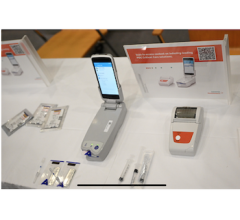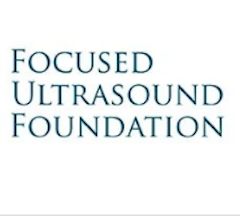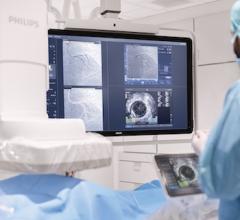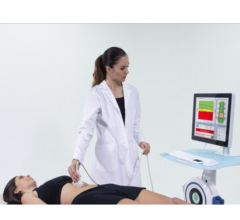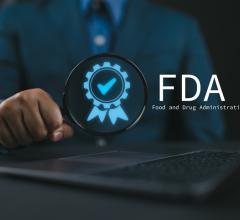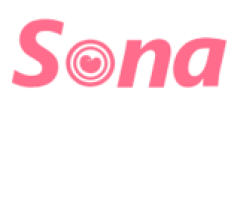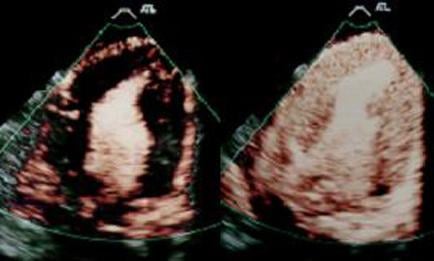
October 4, 2011 – The International Contrast Ultrasound Society (ICUS) submitted a petition this week to the U.S. Food and Drug Administration (FDA) requesting removal of the boxed warnings on ultrasound contrast agents. The members of the group say this would bring the product labeling into line with the current body of scientific research, which it says clearly demonstrates the safety and clinical benefits of these imaging products.
ICUS members are concerned that current boxed warnings may unduly deter the use of an exceedingly safe, reliable, non-invasive and cost-effective diagnostic imaging tool that does not expose patients to ionizing radiation. Given the potential life-saving benefits of ultrasound contrast agents and the potential risks associated with their non-use, ICUS believes the warnings are inconsistent with the standards of the FDA for use of boxed warnings. ICUS said at the time the FDA required the boxed warnings, there may have been insufficient data to support clinicians’ positive experience with ultrasound contrast agents. They added that the FDA’s decision to add boxed warnings was, at that time, consistent with its regulatory authority and guidance.
However, ICUS contends the threshold criteria used by the FDA to determine whether a particular medication should be assigned a box warning clearly no longer apply to echo ultrasound contrast agents. When assessing the risks and benefits, ICUS said the adverse reaction rate is not serious enough in proportion to the potential benefit of the drug.
The group said ultrasound contrast agents should be encouraged for a number of important reasons, including their safety, improvement to diagnostic accuracy, their use encourages reduced exposure to ionizing radiation, and they reduce overall healthcare cost. ICUS said the boxed warnings deter use of ultrasound contrast agents, especially in critically ill patients who have the most to gain from a more reliable diagnosis and expeditiously administered therapies.
The safety of ultrasound contrast agents has been extensively studied since the FDA decision to require boxed warnings on the product labels. In addition to six safety studies undertaken by the product sponsors, numerous independent investigator-initiated scientific studies have now been published in peer-reviewed medical and scientific journals, showing no increased safety signal even among the sickest patients. ICUS contends these studies show ultrasound contrast agents are not associated with increased risk of death, myocardial infarction or other morbidities. The group said the studies also show the agents are safe in patients with pulmonary hypertension, acute myocardial infarction and congestive heart failure, in critically ill patients in the intensive care unit, and in patients undergoing stress testing.
By way of example, a recent meta-analyses of these studies showed the risk of death for contrast echocardiography was 0.34 percent (726 out of 211,162 patients) versus 0.9 percent in patients undergoing unenhanced echocardiography (45 out of 5 million patients).
In studying more than 4.3 million patients, it was found that those receiving a contrast agent were actually 24 percent less likely to die within 24 hours than patients who did not receive a contrast agent during an ultrasound diagnostic examination, ICUS wrote in its petition.
Similarly, the American Society of Echocardiography Multi-Center Registry of thirteen sites and more than 66,000 doses showed (a) no deaths, (b) no serious adverse events in hospitalized patients, (c) severe adverse reactions in eight non-hospitalized patients (0.01 percent), and (d) anaphylactoid reactions (severe allergic reactions) in four patients (0.006 percent). The authors of the study concluded the incidence of severe adverse reactions to ultrasound contrast agents is lower than, or similar to, that reported for contrast agents commonly used in other cardiac imaging tests. Further, a meta-analysis of eight controlled observational registry studies, with nearly a quarter million patients, concluded: “the cumulative evidence has suggested that the use of contrast agents for echocardiography is safe." In fact, the meta-analysis actually showed lower mortality rates in patients who received ultrasound contrast recipients. According to the senior author, "we did not see any signal that echo contrast was causing any harm."
ICUS said, as with any medical procedure or device, ultrasound contrast agents do carry some associated risks. The most serious is the potential for an anaphylactoid reaction. However, studies have shown that the risk of an anaphylactic reaction from an ultrasound contrast agent is comparable to that of non-ultrasound contrast agents — approximately 1 in 10,000 events. In addition, according to the data from the American Society of Echocardiography Multi-Center Registry, the incidence of severe adverse reactions to ultrasound contrast agents is lower than, or similar to, that reported for contrast agents commonly used for other cardiac imaging. ICUS said these studies have shown that the majority (65 percent) of patients who experienced an adverse event had a history of allergy.
For more information: www.icus-society.org


 February 05, 2026
February 05, 2026 

